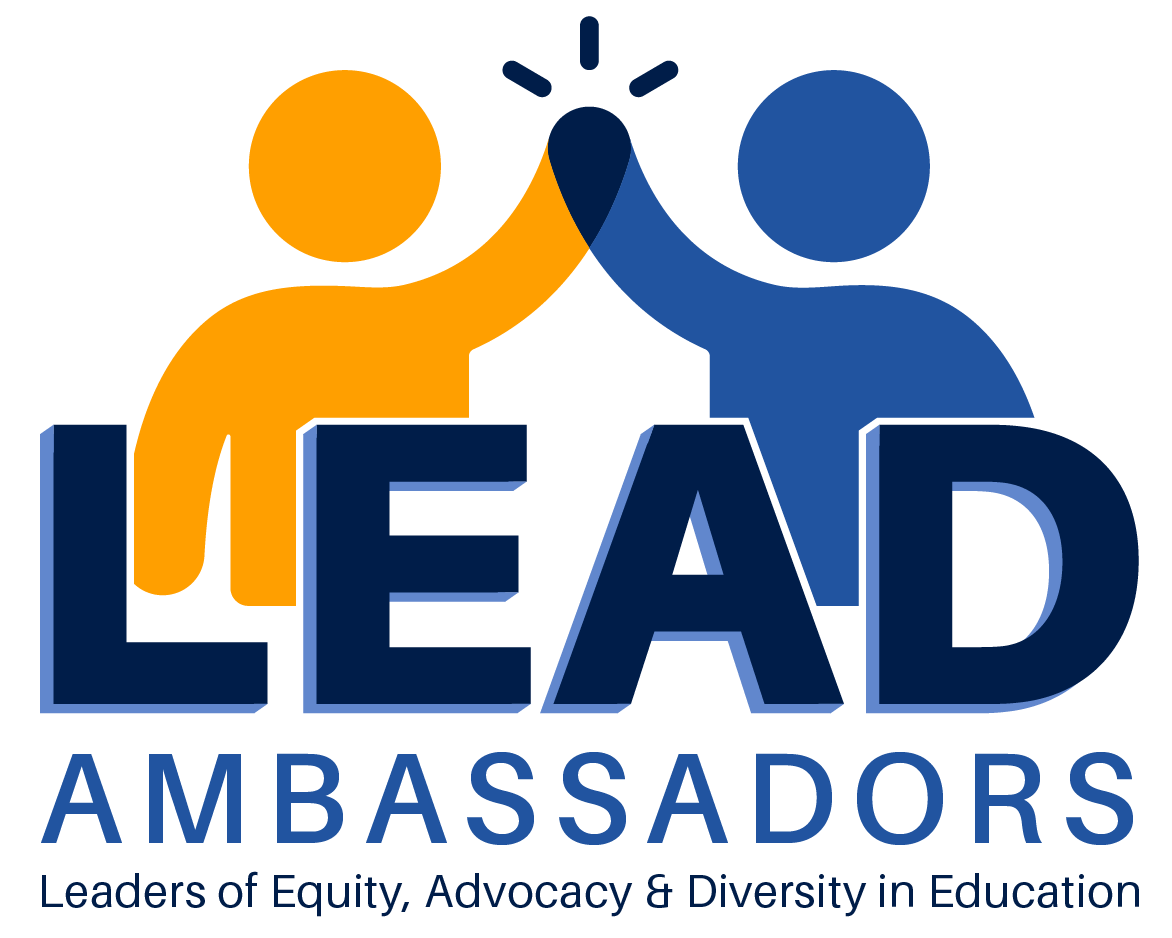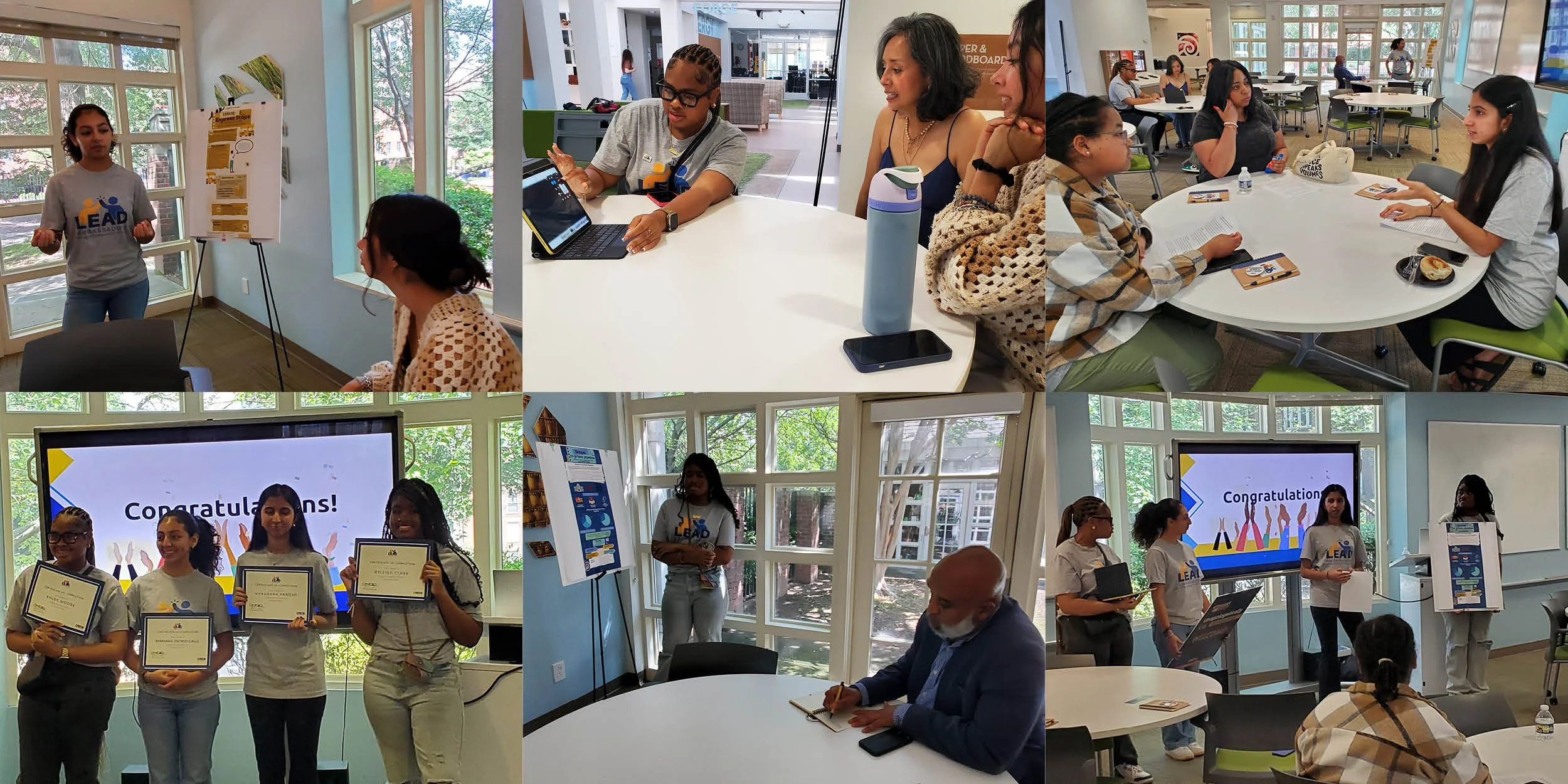
The Leaders for Equity, Advocacy and Diversity (LEAD) in Education Ambassador program creates opportunities for students in Mecklenburg County to develop as leaders who are informed and empowered to act locally at their schools and at the district level as well as to come together with other student leaders across the district.
The LEAD ambassador program is an interactive, engaging and educational series with goals to increase participant knowledge of education equity issues, introduce racial equity and social justice lenses to change-making, expose participants to education policy as a career and those who practice it and offer a small stipend/grant to kickstart change.
Applications for the 2025-2026 LEAD Ambassadors cohort are now open!
LEAD’s 3 Pillars
Racial/Educational Justice: Access to a high quality education should be available to all regardless of race, income, gender, sexual orientation, ability, etc. LEAD strives to challenge the current system and its policies that work to underserve students of many identities.
Advocacy: LEAD supports students in building advocacy skills so they can champion changes they want to see within their school district.Leaders too often make decisions without listening or creating space for students to share their concerns. LEAD works to empower students to express their needs along with the needs of their school community.
Leadership: In the program, students gain leadership skills through their advocacy projects. Projects are based on education issues students are passionate about and include research and local polling, design of possible solutions, and presentations to the community.
Program Details
Ambassadors will meet monthly (6-10 meetings, usually on Saturdays). These sessions include activities, guest speakers, and field trips—all designed to help students develop the skills needed to champion education equity. Session Topics include:
Topic 1: The Deep-Rooted History of Education Inequity in North Carolina
Topic 2: What Is Youth Advocacy? How Young People Can Impact Education
Topic 3: Education Policy Challenges Within CMS
Topic 4: Bus Tour – Exploring Charlotte’s Geographic and Educational Landscape
To complete the program, students must:
Attend the majority of sessions
Develop and execute an Advocacy Project (each session is structured to support students in this process)
Advocacy Project
The purpose of this project is for Ambassadors to have the opportunity to demonstrate the knowledge and skills they have gained/developed during the program. Ambassadors can either work alone or work with other participants to complete the project. With guidance, Ambassadors will choose a problem within their schools or district that interests them the most.
Ambassadors will present their projects at a capstone event with an audience of parents, educators, parents, etc. Projects will also be posted on CREED’s website.
Ambassadors have the option to choose how they want to deliver their projects. Below are examples of deliverables that some Ambassadors have chosen from:
Spoken Word/Poem
Speech
Infographic
Video/Documentary
Public Service Announcement
Podcast Episode
Past Advocacy Projects
Khloe Moore - Teacher Shortages
Khloe completed a video project on teacher shortages, interviewing both Students and Teachers at her school. She asked how they felt about the shortages and how the issue affects their quality of education.
Mariana Osorio-Calle - Express Stops
Mariana designed an infographic on the recently redesigned CMS Express stops, discussing how they inconvenience parents and students by making it difficult to arrive at school and return home safely. She surveyed her peers about whether they have a transportation stop, how far it is from their home or school, and how it impacts their ability to get to school on time. She also provides recommendations for CMS on how to improve the transportation system.
Nandhana Rameshraju - Supporting Neurodivergent Students Beyond the Worksheet
Nandhana wrote an Op-Ed advocating for better support for neurodivergent students in the classroom. She highlights how the one-size-fits-all model that is used in many schools fails to meet the needs of neurodivergent learners. Instead, she argues for individualized learning approaches that adapt to students’ unique learning styles rather than assuming everyone learns the same way.
Ryleigh Clark - The School-to-Prison Pipeline
Ryleigh created an infographic about the School-toPrison Pipeline, explaining the problem and disproportionate impact on Black and Brown students within CMS. For her research, she surveyed students at her school about school discipline and its effects on their educational experience. She also offers recommendations for policy makers to address this issue.






